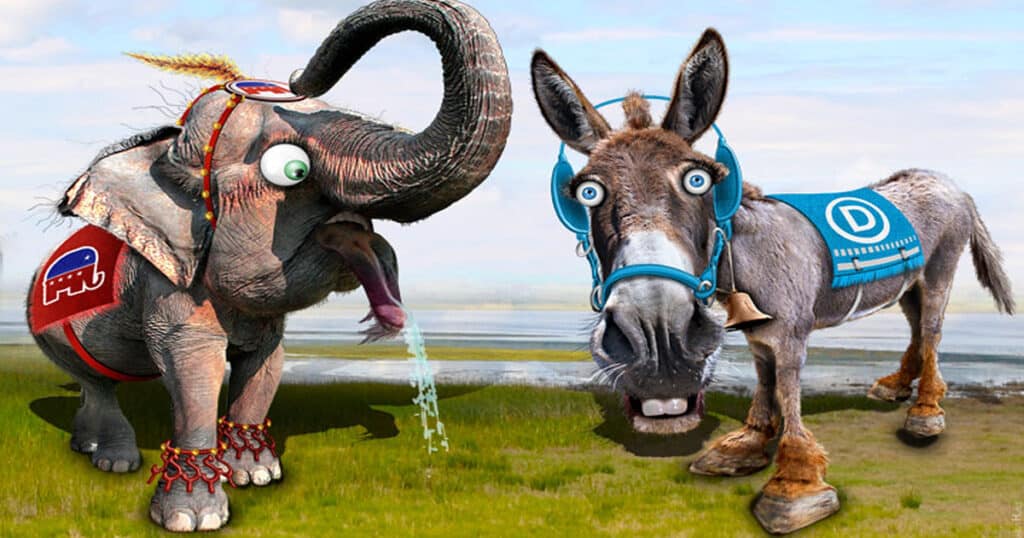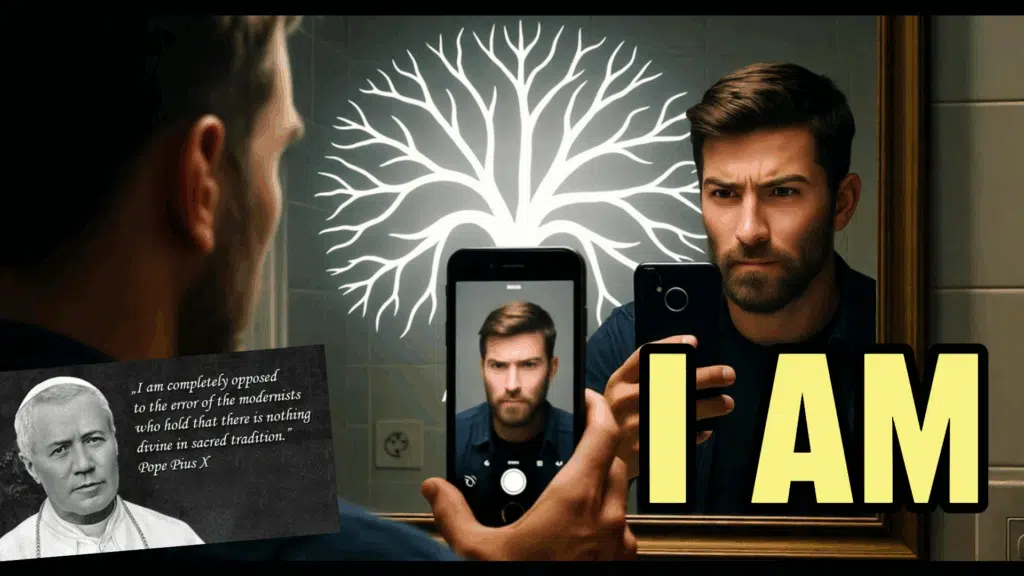
The Profanity Trend Is Tired and Played Out
In 1985 – when I was 7 – the young kids in my neighborhood had a “swear club.” To join, the initiate had to hide behind a tree with the assembled members and say every swear word he knew. It was less common for children our age to encounter profanity back then. There weren’t many parents who routinely used profanity around kids, and other adults would clean up their speech when children were in earshot. This meant that the obscenities we did know were gleaned from overhearing adults in moments when they thought kids weren’t listening, or in brief bits of a new cable subscription service called HBO as we switched through the channels for our parents.
The popularization of casual swearing began with the cultural revolution of the 1960s. Breaking the rules of decorum, polite discourse, and social convention was a way to signify the revolutionaries’ status as opponents of the “status quo.” Now, as Trump’s second term gets underway, Democrats have apparently made a group decision that public obscenities are the best way to signal their discontent with the new administration.
A recent article on this trend at The Hill quotes Michael Adams, who is described as “a lexicography expert and author of the book ‘In Praise of Profanity.’” Adams explains “that in the case of the Democratic candidates, the swearing reflects their sense of crisis.” Without any sense of irony, he continues: “There’s just a point at which the usual vocabulary will not be sufficiently expressive in the moment. […] All the niceties, […] we have to put that aside because the situation in which we find ourselves is so dire politically, culturally, and historically, that we just need to act.”
Apparently, the “action” that Adams alludes to is more f-bombs. Like our “swear club” in 1985, this is childish. A half-century ago during the Summer of Love, the Left’s use of profanity may have been shocking and edgy, but now it’s just tired and played out.
At this point, it’s usually just new combinations of the same ten or fifteen “four-letter words.” It’s hard to believe that a lexicography expert who wrote a book on profanity doesn’t grasp that when people use this language so indiscriminately, for such a broad range of situations, it is stripped of whatever rhetorical power it used to have. Obscenities no longer indicate any emotional authenticity for the listener because people often use profanity merely to appear exceptionally frustrated, angry, or disgusted. Further, they invoke these words to convey just about every emotion, whether it be surprise, happiness, sadness, apathy, boredom, or anything else.
But it’s not just in politics: it’s everywhere.
A few examples are in order. Anora, the recent winner of the “Best Picture” award at the Oscars, is a heartwarming story about a prostitute. Forgive me: I meant “sex worker.” Ironically, as actual profanity has become more and more common in public discourse, so-called “slurs” like prostitute have been ever more rigorously and hypocritically monitored by the language police. Anyway, an online “parent’s guide” to popular movies informs parents that Anora contains “417 f-words.” Parents who are considering whether Anora might be an edifying experience for their children should do the math: with a run-time of 8,340 seconds, “417 f-words” means the word fuck is uttered every 20 seconds for the duration of the film. Who talks like that?
Wall-to-wall profanity has made cinema worse because it makes dialogue unbelievable, thereby undermining the verisimilitude of what are often unbelievable stories from the get-go. In a study of over 12,000 screenplays, a popular blog found that the average film uses the f-word about 23.9 times, nearly twice the average appearance of shit. And when it rains it pours. As the blog helpfully points out, “only sixteen scripts used ‘cunt’ without also using ‘shit’ or ‘fuck’ at least once.”
And of course, art imitates life, which in turn imitates art. Thus, the doddering Robert De Niro can find no other way to convey his bottomless hatred of Donald J. Trump than to keep shouting “Fuck Trump” into every microphone he has seen for the past nine years. We’ve also got David Hogg, school-shooting survivor turned Vice Chair of the National Democratic Committee, talking tough about Trump in the only way he knows how: by swearing a lot. Noted scholar and stateswoman Jasmine Crockett furiously walked out of President Trump’s recent speech to a joint session of Congress. Meeting the cameras in the lobby, she delivered these words of wisdom: “What is happening? Like, this is not America. This is a terrible nightmare. Somebody slap me and wake me the fuck up because I’m ready to get on with it.”
Alas, Jasmine. I wasn’t in D.C.
Don’t worry, though: “the experts” assure us all of this is fine. Even swearing in front of children is just fine, the Los Angeles Times advises. But if the last 5 years have taught us anything, it’s that “the experts” are idiots, and the more obvious a truth is, the harder it is for them to see it. Of course using profanity around children hurts them – especially when it’s their parents who speak in this way. Children still don’t know the conventions of public discourse. But they know that those words are “bad.” In their naivete, many of them still believe that such speech is indicative of extreme anger, frustration, or disgust. That being the case, when they see grown adults – people who should be role models – indicating they are feeling extreme emotions in regard to trivial situations, children learn all the wrong lessons.
First, it contributes to emotional dysregulation. Seeing an adult getting extremely agitated over a small matter suggests to them that it is normal to feel that way. Secondly, it conveys to children that overwhelming emotions can and should be expressed – it inhibits their ability to learn how to productively channel and vent strong emotions when they are felt. Finally, it limits their vocabulary and adeptness in describing their feelings in more productive terms, terms that might be more conducive to navigating life’s difficulties and interpersonal conflicts.
I have a son who can be difficult. When he was 4 years old, we were getting him ready for the final event at that summer’s Vacation Bible School, where the children would sing a song for the assembled parents. He didn’t want to sing. As we drove to the event, we coaxed him with ice cream after the show. When it came time to sing, he was in the front row. And he sang! At the conclusion, I looked at him, smiled, and gave him two thumbs up: I was proud he had seen it through. To this gesture of encouragement, he gazed back and gave me two middle fingers. 4 years old. On the way home, I asked him about it. He didn’t know what that gesture meant. I asked him where he learned it. He said from the kids at his preschool. Guess where they learned it?
We find ourselves at a unique moment in American history. People are taking notice not only of the decay of our economy and the dysfunction of our government, but also a cultural decline that has gone on for decades. The saturation of public discourse with profanity is one more sign of this decline. If we are to make America great again – and indeed, make it physically and emotionally healthy again – a major task in this effort will be changing the way we talk to one another. A culture that insists upon vulgarity in its art and in every social context is one that doesn’t care about its children. We owe them better.
Adam Ellwanger is a professor at University of Houston – Downtown, where he teaches rhetoric and writing. Follow him at @1HereticalTruth on X.
This article was originally published by RealClearBooks and made available via RealClearWire.



